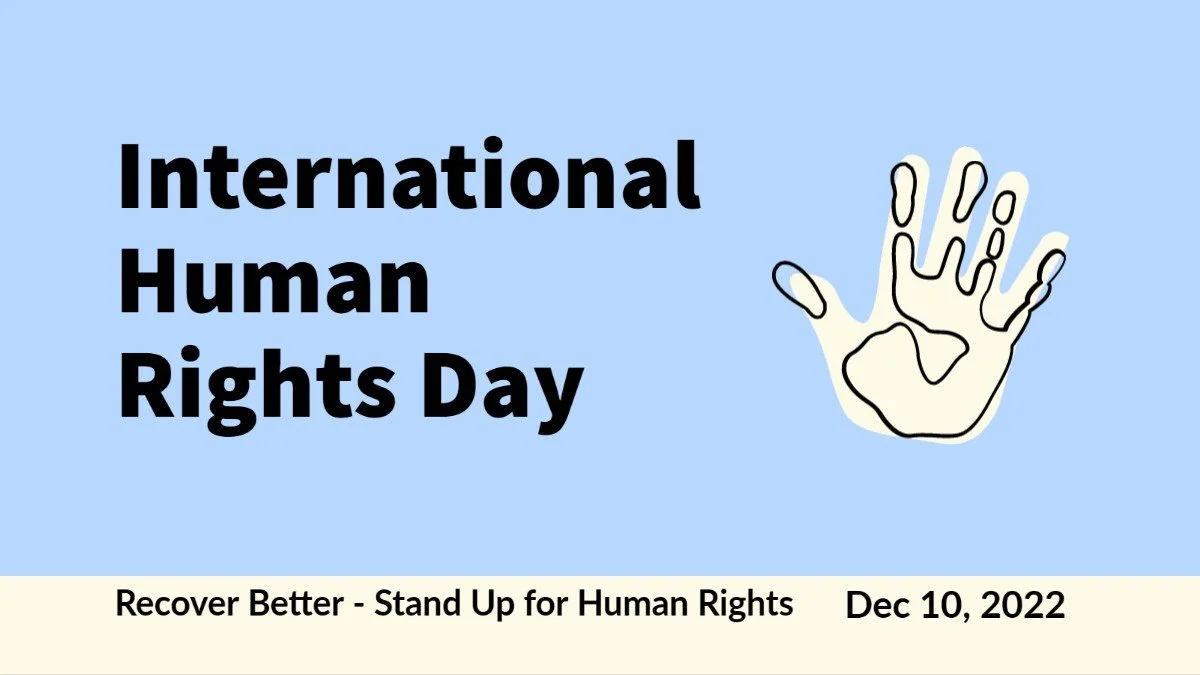International Human Rights Day: Recover Better - Stand Up for Human Rights
Today is the United Nation’s International Human Rights Day. As we start to recover from a global pandemic, "we need to remember to continue to champion our human rights and embed human rights for all” Rāwā Karetai Co-Chief Executive / Kaiwhakahaere of Karetai Wood-Bodley & Co (KWB & Co) said. Karetai continued saying that, “We will continue to defend and advocate the human rights for sexual orientation, gender identity, gender expression and sex characteristics (SOGIESC) minorities in our region. As well as those who have intersectional characteristics such as disabled people and indigenous people".
"It is easy to be distracted from our campaigns for Human Rights as we have had at least two significant events this year that have impacted us", said Frankie Wood-Bodley, Chief Executive / Kaiwhakahaere of KWB & Co. Wood-Bodley continued, saying that “COVID-19 lockdowns globally and the Black Lives Matters campaign, are an excellent example of why we need to continue to champion the rights of disabled and indigenous Lesbian, Gay, Bisexual, Trans and Intersex (LGBTI+) people”. “We know that those with intersectional identities suffer have poorer outcomes as a result. For example; if you are indigenous, disabled and from the LGBTI+ community you are more likely to suffer from discrimination, threats to life and mental health issues ", Karetai said.
"In New Zealand, we still have a long way to go,... In New Zealand, trans and intersex people are not expressly recognised and protected from discrimination under New Zealand's unwritten constitution”. Said Wood-Bodley. Section 19 of the New Zealand Bill of Rights Act 1990 (NZBORA) incorporates the prohibited grounds of discrimination set out in section 21(1) of the Human Rights Act 1993 (HRA). It prohibits requires those exercising public powers, functions and duties from discriminating against people based on sex and sexual orientation; this is of particular significance to LGBTI+ communities. Wood-Bodley continued, saying that, “It does not expressly protect trans and intersex New Zealanders from discrimination based on gender identity, gender expression or sex characteristics. At present trans and intersex, New Zealanders are reliant on those exercising public powers, functions and duties, as well as tribunals and courts, to interpret sex broadly to include gender identity, gender expression and sex characteristics. As a result, trans and intersex New Zealanders do not have equal protection before the law when compared to their cis-gendered and cis sexed counterparts”.
Wood-Bodley said that "We urge that "gender identity, gender expression and sex characteristics" be added to the prohibited grounds of discrimination specified in section 21 of the Human Rights Act. We want this added so that the Government recognise and demonstrate to trans and intersex members of our communities that their rights are expressly recognised and included". Karetai agreed and also said that, “Just as the prohibition on the grounds of sex was insufficient to include sexual orientation, it is inadequate to encompass and prohibit discrimination on the grounds of gender identity, gender expression or sex characteristics".
In New Zealand, we are also striving to achieve a range of various campaigns to create a safer and inclusive country; these include but are not limited to:
adoption law reform;
safer schools for our LGBTI+ youth and staff;
trans and intersex law reform;
safer spaces for LGBTI+ elderly such as rest homes;
increased awareness and safety of Bisexual+ people;
increasing the ability of the LGBTI+ community to donate blood;
erasing HIV stigma and discrimination; and
safer sporting environments for LGBTI+ people.
Human Rights Day is celebrated annually across the world on 10 December every year. The date was chosen to honour the United Nations General Assembly's adoption and proclamation, on 10 December 1948, of the Universal Declaration of Human Rights, the first global enunciation of human rights and one of the significant early achievements following the formation of the United Nations.
KWB & Co is a professional network of LGBTI+ and consultants with intersectional identities who specialise in domestic and international human rights law and policy, leadership, strategy, and governance.
Queerly Legal specialise in advocating and advising on everyday matters affecting LGBTQIA+ people, allies and their whānau.


